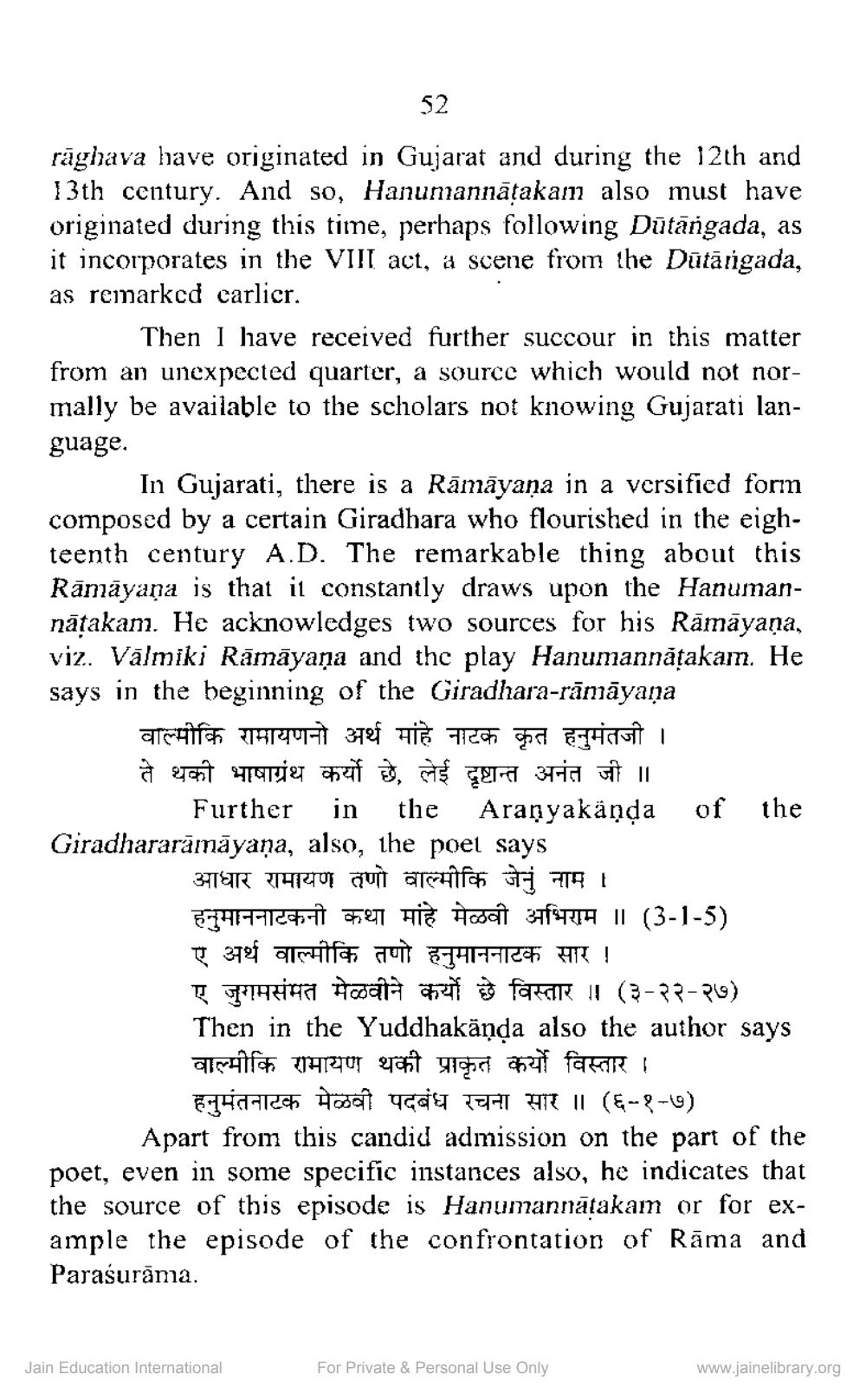Book Title: Hanumannatakam Date and Place of Its Origin Author(s): Vijay Pandya Publisher: ZZ_Anusandhan View full book textPage 7
________________ rāghava have originated in Gujarat and during the 12th and 13th century. And so, Hanuniannātakan also must have originated during this time, perhaps following Dūtangada, as it incorporates in the VIII act, a scene from the Dūtārigada, as remarked carlier. Then I have received further succour in this matter from an unexpected quarter, a source which would not normally be available to the scholars not knowing Gujarati language. In Gujarati, there is a Rāmāyana in a versified form composed by a certain Giradhara who flourished in the eighteenth century A.D. The remarkable thing about this Rāmāyana is that it constantly draws upon the Hanumannātakanı. He acknowledges two sources for his Rāmāyaṇa, viz. Vālmiki Rāmāyaṇa and the play Hanumannátakam. He says in the beginning of the Giradhara-rāmāyana वाल्मीकि रामायणनो अर्थ मांहे नाटक कृत हनुमंतजी । ते थकी भाषाग्रंथ को छे, लेई दृष्टान्त अनंत जी || Further in the Aranyakända of the Giradhararāmāyaṇa, also, the poet says आधार रामायण तणो वाल्मीकि जेनुं नाम । 6146-127-17 772 H Hoa 3114 || (3-1-5) ए अर्थ वाल्मीकि तणो हनुमाननाटक सार । T he Hodata faran I (3-77-79) Then in the Yuddhakāņda also the author says वाल्मीकि रामायण थकी प्राकृत को विस्तार । 64aare Hoch Tray AT HTL II (--) Apart from this candid admission on the part of the poet, even in some specific instances also, he indicates that the source of this episode is Hanumannātakam or for example the episode of the confrontation of Rāma and Parasurama. Jain Education International For Private & Personal Use Only www.jainelibrary.orgPage Navigation
1 ... 5 6 7 8 9
